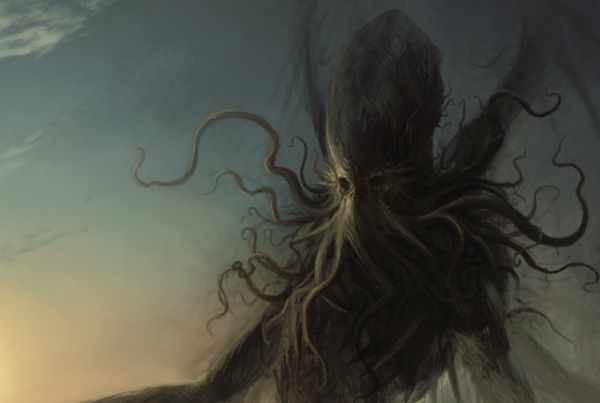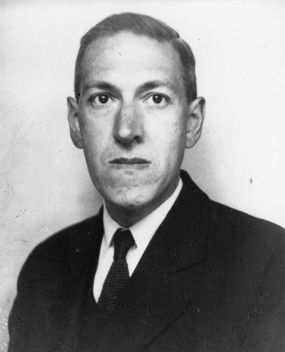
It was the first time Lovecraft had ever lived alone— and he was spectacularly homesick. Born in Providence in 1890, he viewed his hometown—with its scholarly atmosphere and dilapidated 18th-century mansions—as an essential piece of his identity. “Providence is me—I am Providence,” he wrote his aunt from his New York exile, inspiring the title of S. T. Joshi’s authoritative biography, I Am Providence: The Life and Times of H.P. Lovecraft. The city suited Lovecraft—a self-taught antiquarian obsessed with the contrasts of New England—in ways that New York could not.
Lovecraft grew up with a neurotic and stifling mother, Susie, and two aunts. (His father had died, probably of syphilis, after a stint in a mental institution.) The family had little of the capital but all the prejudices associated with old New England pedigree, and Lovecraft was never trained for any gainful employment. Nervous illnesses kept him isolated at home for long stretches, during which he joined up with “amateur journalist” groups: organizations of unpaid pamphleteers who—with their in-fighting, trolling, and political ranting that no one would ever hear—would likely feel at home in online forums today.
 It
was at a convention for such writers in Boston in 1921 that Lovecraft
met Sonia Haft Greene, an energetic and attractive Eastern European
Jewish widow from New York City, seven years his senior. Lovecraft,
still reeling from the death of his mother six weeks prior, was not
exactly a catch. He had no income besides a dwindling family
inheritance and occasional checks from editorial temp work. He had the
frame of a scarecrow, a protruding lower jaw, and a squeaky voice. He
was also averse to sex, which he blamed on having read a scientific
book as a child. “The whole matter was reduced to prosaic mechanism,”
he wrote later, “a mechanism which I rather despised.” Not to mention,
he was a virulent racial purist, outwardly disgusted by immigrants,
tending to become “livid with anger” when he encountered foreign
workers. Neatorama has the rest.
It
was at a convention for such writers in Boston in 1921 that Lovecraft
met Sonia Haft Greene, an energetic and attractive Eastern European
Jewish widow from New York City, seven years his senior. Lovecraft,
still reeling from the death of his mother six weeks prior, was not
exactly a catch. He had no income besides a dwindling family
inheritance and occasional checks from editorial temp work. He had the
frame of a scarecrow, a protruding lower jaw, and a squeaky voice. He
was also averse to sex, which he blamed on having read a scientific
book as a child. “The whole matter was reduced to prosaic mechanism,”
he wrote later, “a mechanism which I rather despised.” Not to mention,
he was a virulent racial purist, outwardly disgusted by immigrants,
tending to become “livid with anger” when he encountered foreign
workers. Neatorama has the rest.

No comments:
Post a Comment